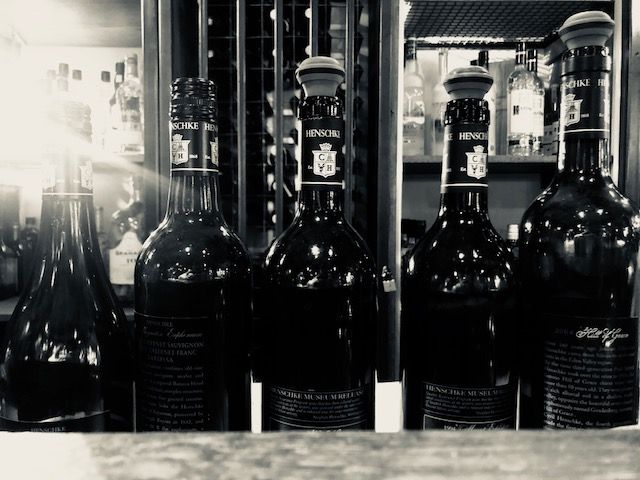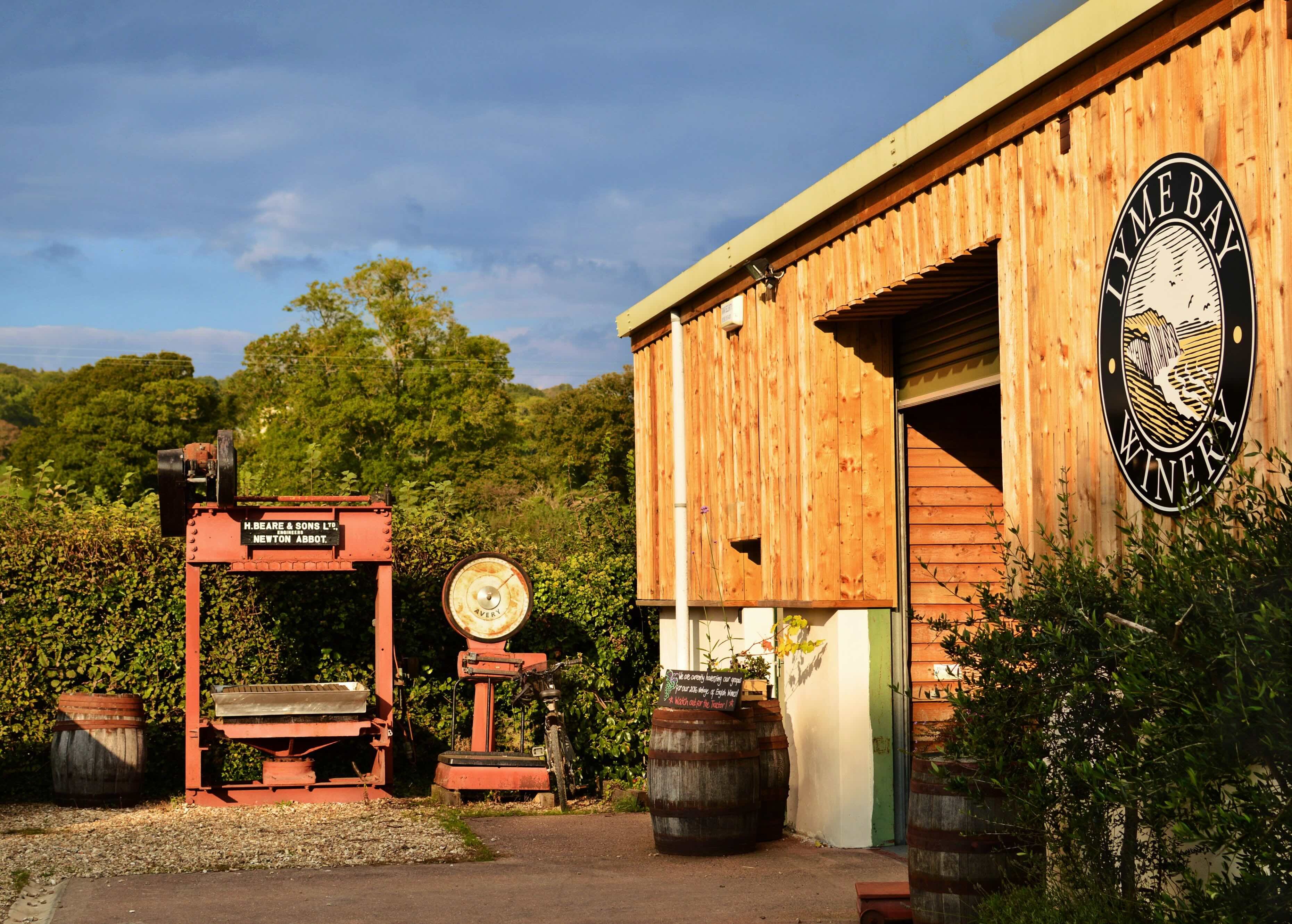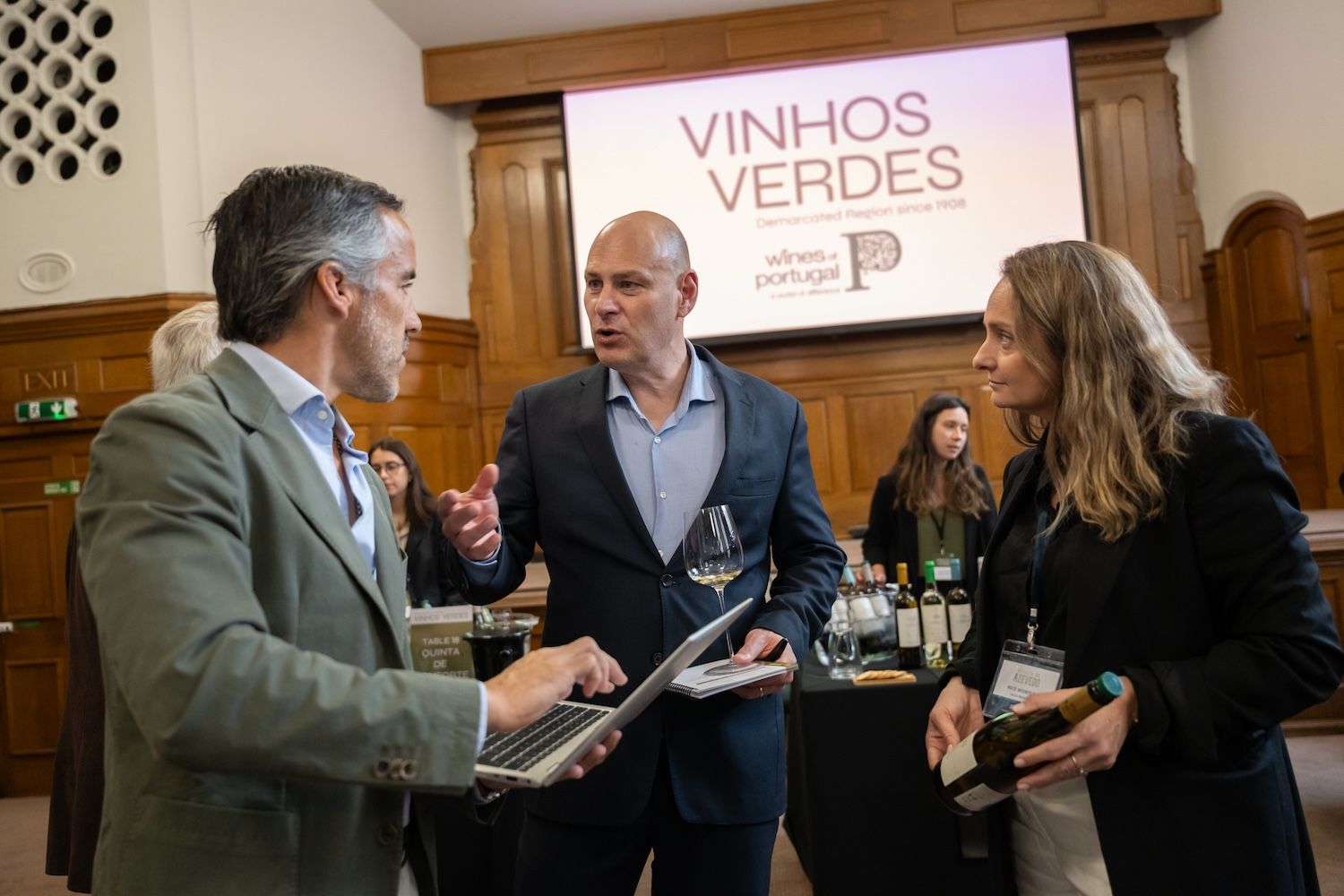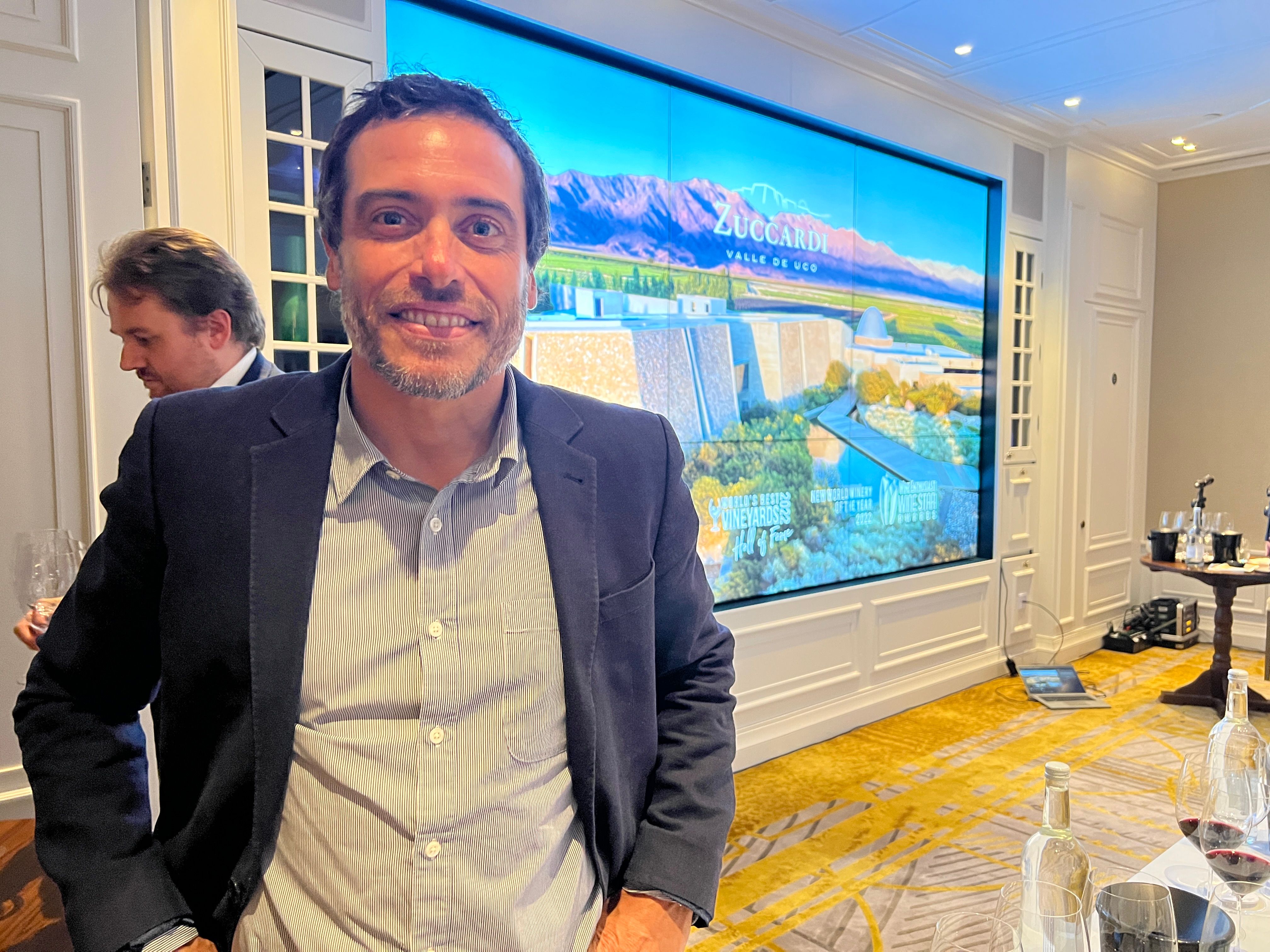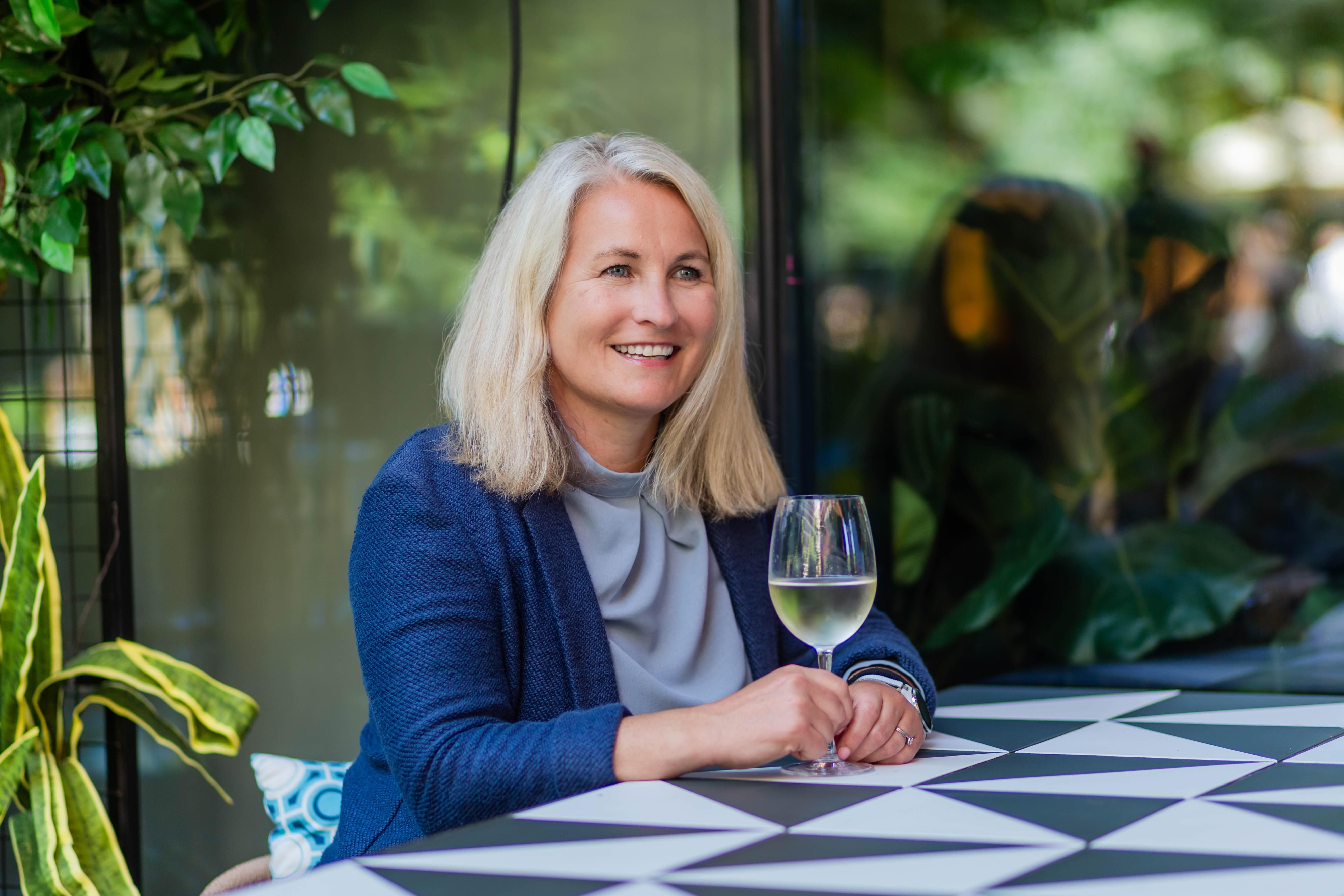Johann Hanschke is the sixth generation of winemakers in the Henschke family, named as he is after his great, great, great grandfather Johann Christian Henschke.
There’s a shop in Cambridge called Mackay. Technically it’s a DIY shop, but it’s way more than that. Way more.
It’s a Cambridge-institution – the type of place where you can buy nuts, bolts, screws, hooks, coasters, fork handles, you name it, in myriad sizes and in any quantity – and it’s loved by the local community as much for its wares (did I mention that you can buy fireworks at Mackay ALL YEAR ROUND) as for its inimitable staff and owners.
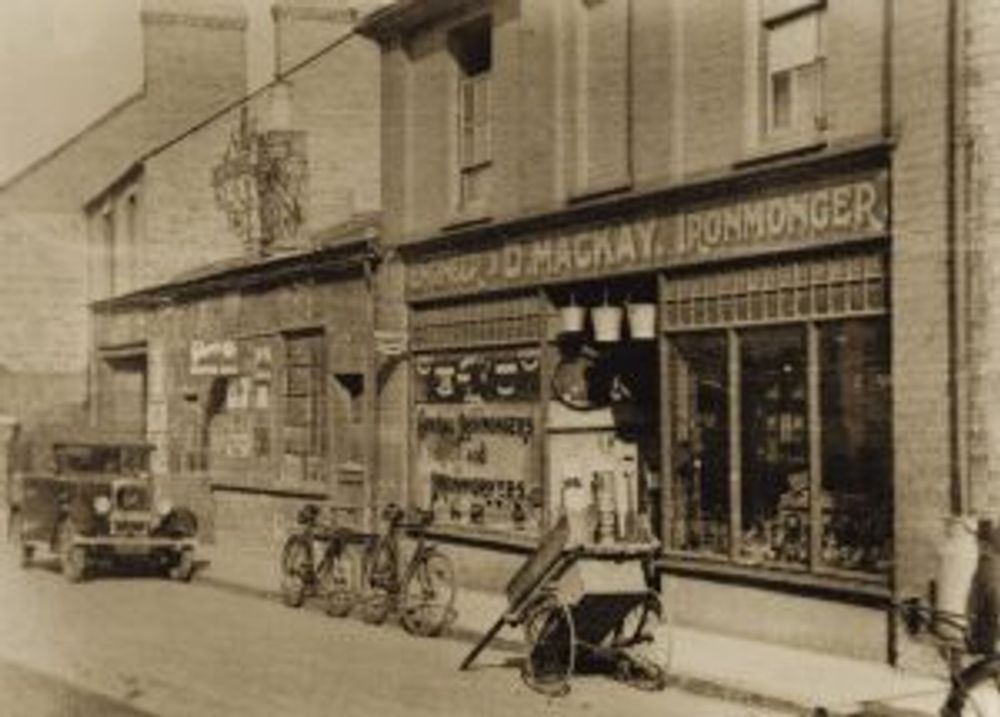
Mackay is a family-owned and run business which was established in 1912 and has been passed down through the generations ever since. It’s this family connection that runs like an invisible thread through all it does and ties together not only the business itself but also the people who shop there; children who visited with their parents when they were little now take their kids there to marvel at the wonderful assortment of ‘stuff’ on show.
What has this got to do with wine? A lot I’d say, as the importance of family and business transcends the product itself; so whether you’re hawking screwdrivers or Shiraz people buy into it on a different level, especially if that sense of family brings with it a trust in the product and that the people behind it are honest, hardworking and care as much about it as you do. Most family businesses stamp their name across their product and the family name lives and dies by the reputation of what they sell.
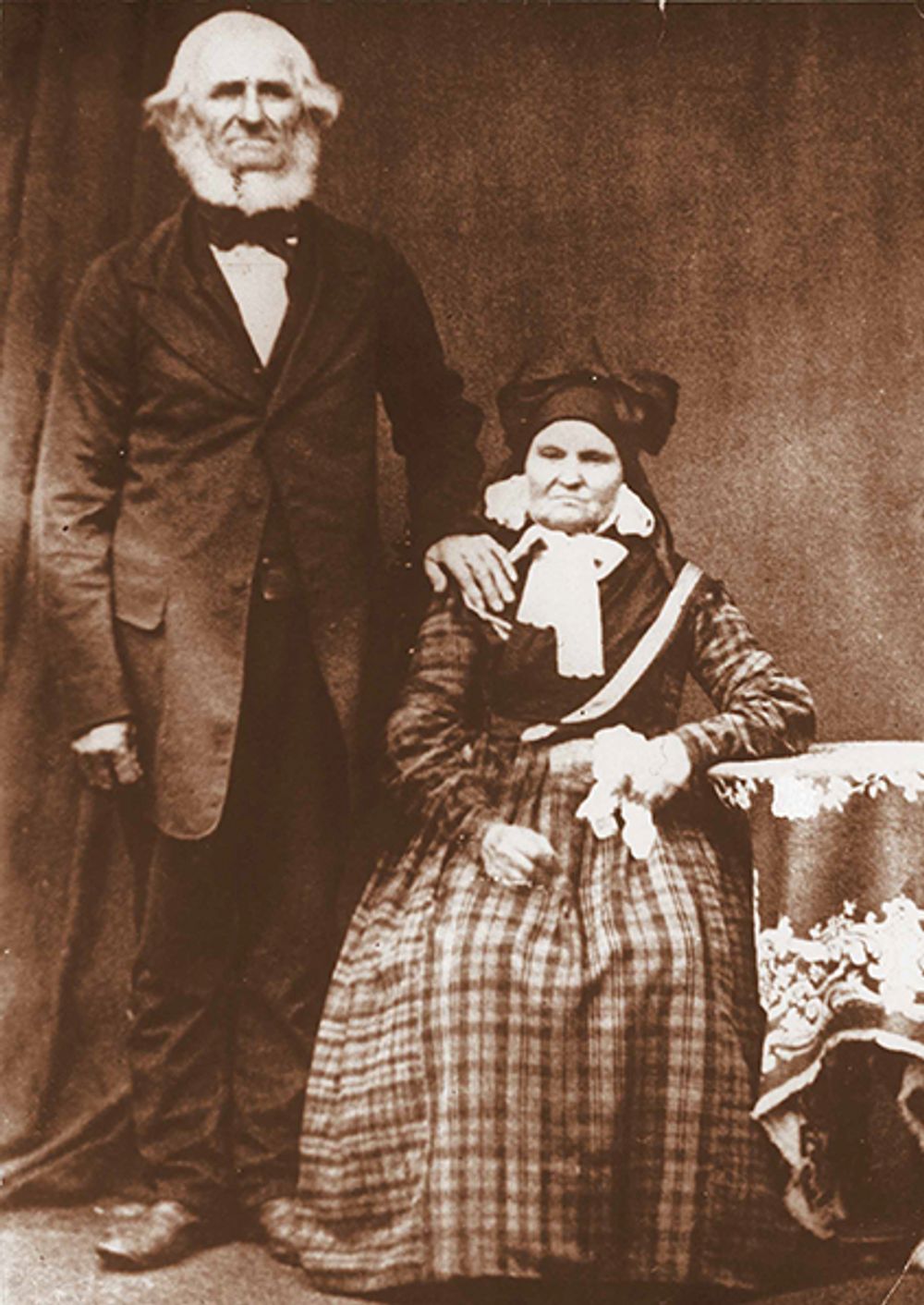
Johann Christian Henschke with his wife Appolonia who died, along with his six year-old son and nine month old daughter en route to Australia.
This brings me to a recent masterclass hosted by Australian winery Henschke. The Henschke family has been making wine in the Barossa valley since 1847 when Christian Henschke and his family arrived from central Europe and planted 70 acres of vines in Krondorf.
Six generations on and with the business still wholly family-owned, Johann Henschke is in London to host a tasting of some the best and best-known Henschke wines including Mount Edelstone and Hill of Grace, the new release of which, the 2013, is launched in early September.
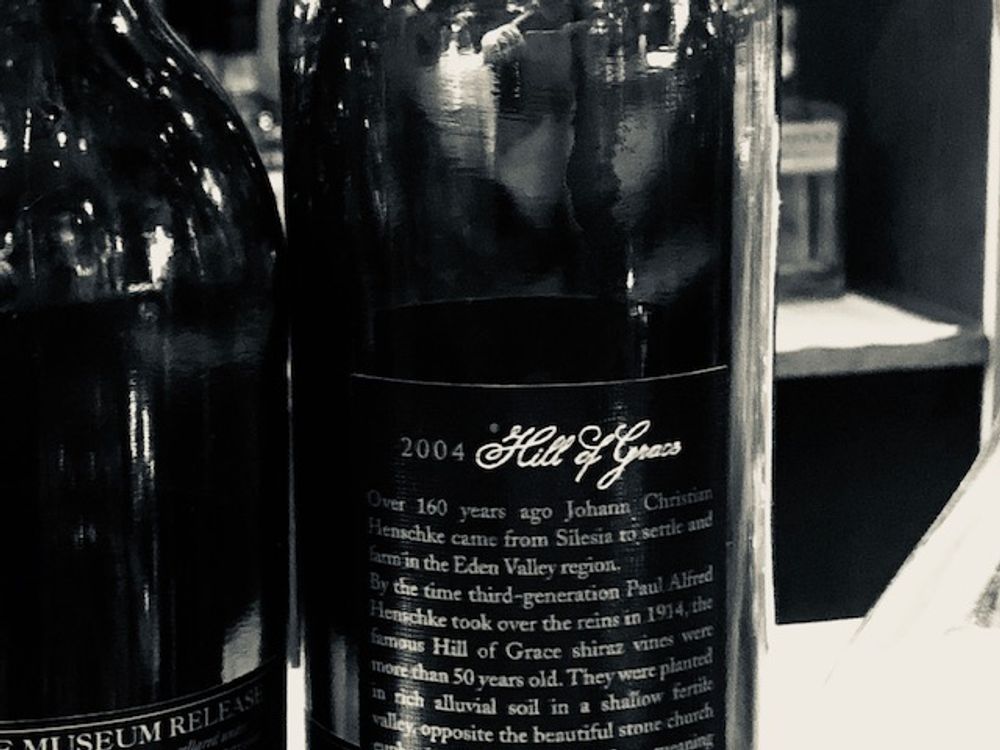
Before we embark on this snappy and rewarding tasting Johann explains the key to Henschke’s success. It’s simple he says; we’ve been nurturing the same vineyards for 150 years, treating them with respect every day and we know them inside out. The focus on single sites offering high-quality expressions, many planted with pre-phylloxera vines has allowed them to produce outstanding, benchmark wines year-on-year.
The fact that the same family has shared this passion and – crucially – vested-interest for 150 years can only have helped, and Johann says there’s still a lot more to achieve for this pioneering family.
THE WINES
Julius Riesling 2017
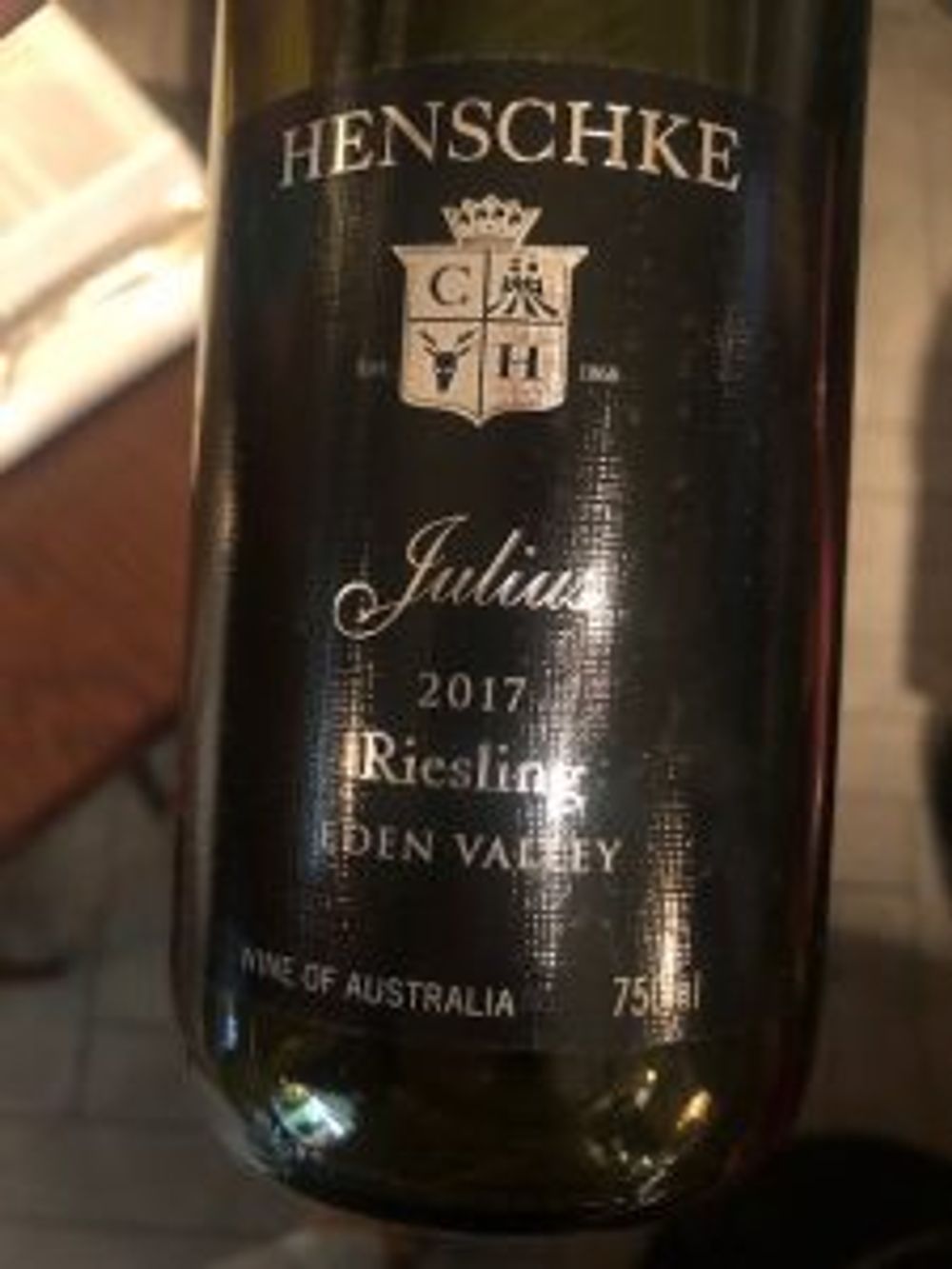
From a vineyard-planted in 1968, 500m above sea level in central Eden Valley this is a powerful, well-defined Riesling. Its nose of lime and honeysuckle gives way to an explosion of acid drops and concentrated lemon squash in the mouth, where white flowers and Plasticine also get a look in. It finishes fresh and water-like but with an on-going lick of acidity.
Louis Semillon 2015
Also planted in 1968 this single-variety Semillon has seen a touch of French oak, with 8% aged on the lees in seasoned barrels. The wine has a lovely weight and a rich and floral palate that has a lovely purity and Manuka honey, garden peas and cut grass notes. No obvious oakiness, but lovely texture.
Henry’s Seven SGV 2016
Described by Johann as “something to drink while you wait for the Edelstone and Hill of Grace to mature in the cellar” this is blend of Shiraz, Grenache, Mataro and Viognier. It’s a sumptuous, smooth wine with maraschino cherry and plum fruit as well as a counter-balanced savouriness of leather and blood. A smoky finish and soft but grippy tannins leave you wanting more.
Keyneton Estate Euphonium 2014
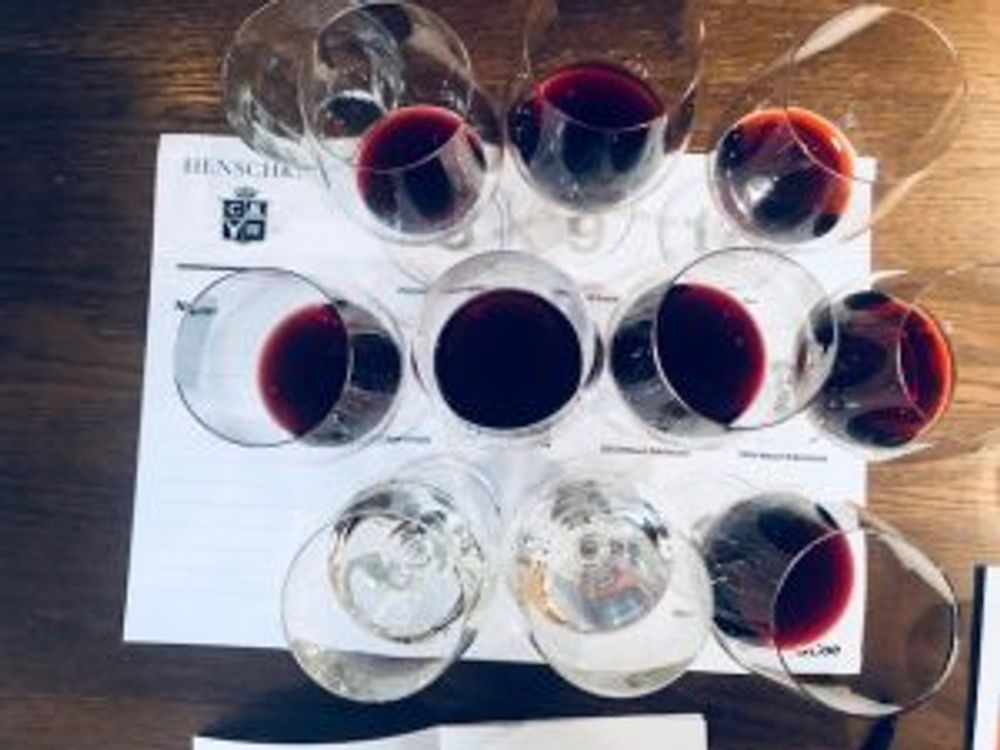
Another big blend, this time Shiraz (57%) is joined by the Bordeaux trio of Cabernet Sauvignon, Merlot and Cab Franc to make for a savoury and robust wine. There’s a big fruit hit of plums and blackberries on the nose followed by smokiness and greenness (mint, sage, rosemary) on the palate. This used to be called ‘Dry Red’ when it was first made in 1972 and you can see why.
Cyril Cabernet 2013
From one of the highest Cabernet Sauvignon vineyards in the Barossa at 450m above sea level, this comes from a very hot year where there were reduced yields but high quality fruit. This ripeness shows immediately with a whack of ripe black and blue fruit, it’s pretty heady but is soon accompanied by more tertiary characters of leather, mushroom and pine cones. A soft nutmeg spice rounds things off.
Mount Edelstone Shiraz 2013
This is the current release of Henschke’s famous Shiraz, planted in 1912 in the Edelstone Vineyard in Eden Valley. It’s bright on the eye sparkling ruby-purple, almost winking at you from the glass. There’s plenty of raspberry and blackcurrant fruit before the complexity kicks in with mint, basil and black pepper all vying for attention. A powerful Shiraz but not overblown, there’s nuance and balance here.
Mount Edelstone Shiraz 1994
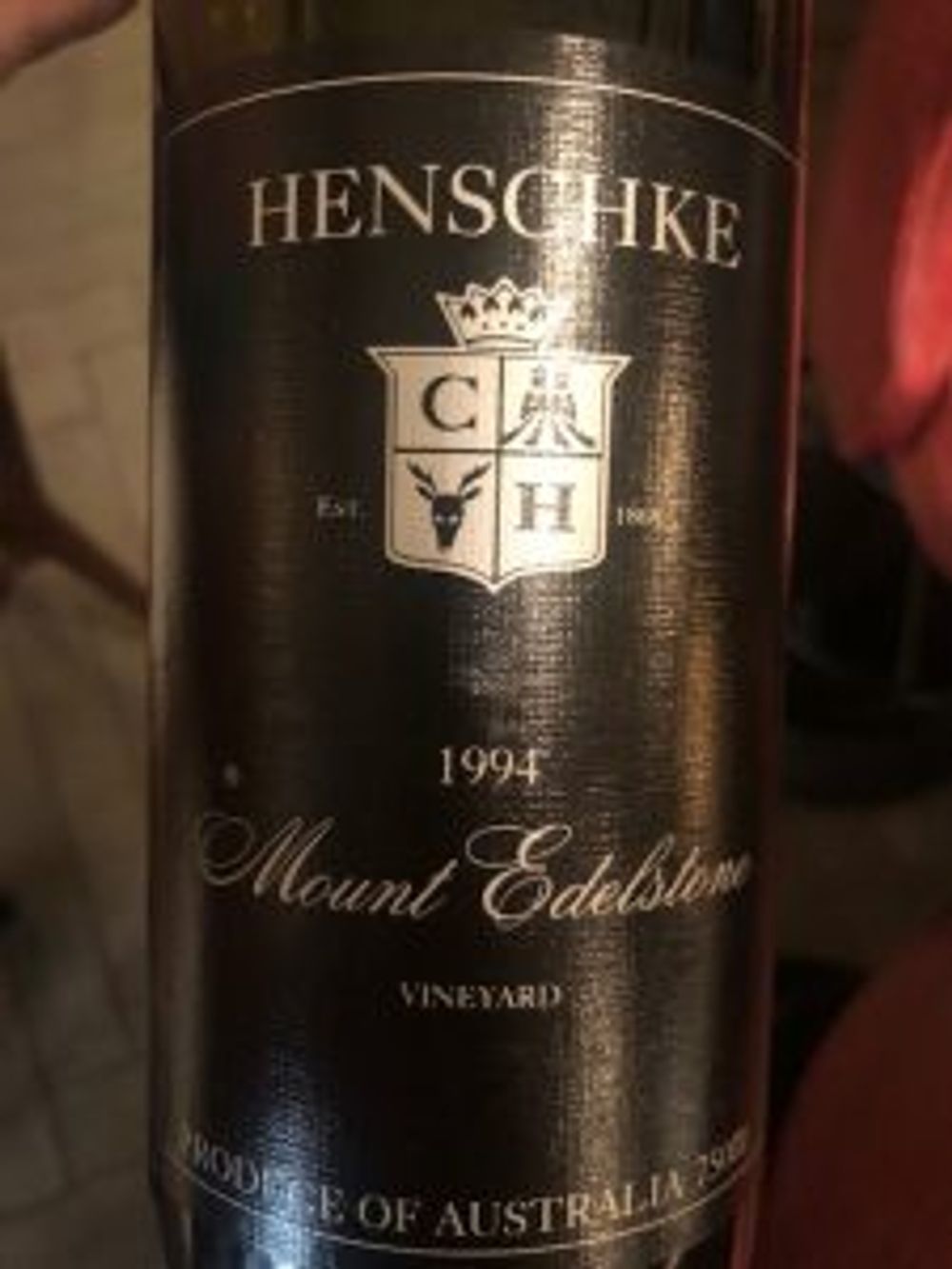
A ‘museum’ wine pulled from the vaults to taste alongside the 2013. 1994 was a very high quality vintage and it has aged very well. It’s developed, earthy and savoury with plum and black fruit, minted peas and a peppery spice. Delicious and concentrated with a swagger and style which draws you back for more.
Hill of Grace 2004
This was the last vintage of Hill of Grace under cork which sparks the inevitable cork debate in the room. Johann is confident that screwcap and Vinolok are perfect for the full Henschke range, with the premium wines – including HoG – now bottled under Vinolok. The wine itself has stood the test of time; it’s lush with a delicate balance between fruit and savoury characters. A divine, assured wine.
Hill of Grace 1993
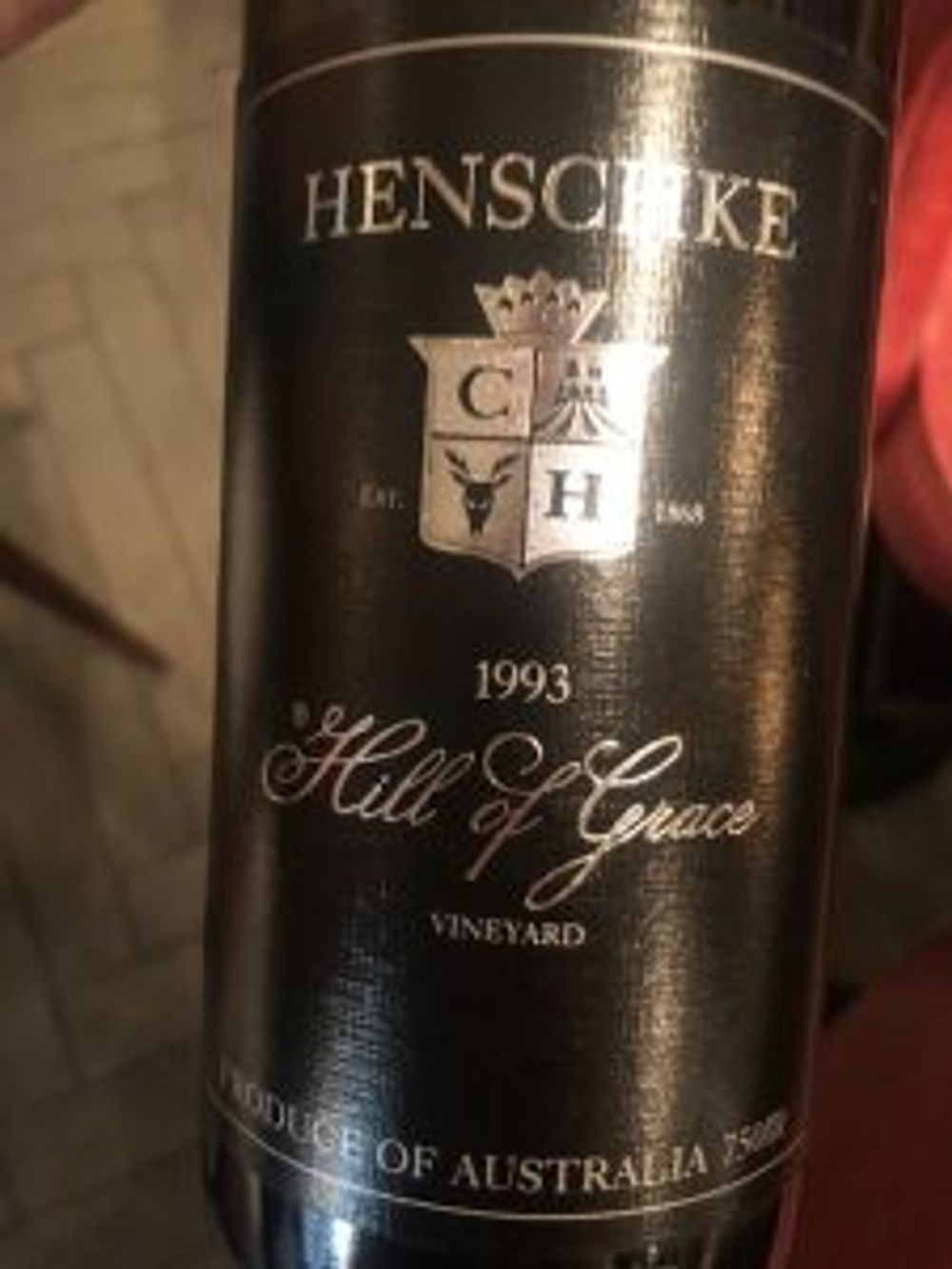
1993 was a challenging year with low yields but the Hill of Grace from this year was acclaimed on release and still stands strong today. As you’d expect it’s way more developed than the 2004 with leather, tobacco and Asian spice notes, but it’s still fresh with knife-edge balance and firm tannins. Its weight in the mouth and length give it an effortless elegance.
Hill of Grace 2013 will be released in the UK by Enotria&Coe on September 3, 2018.
